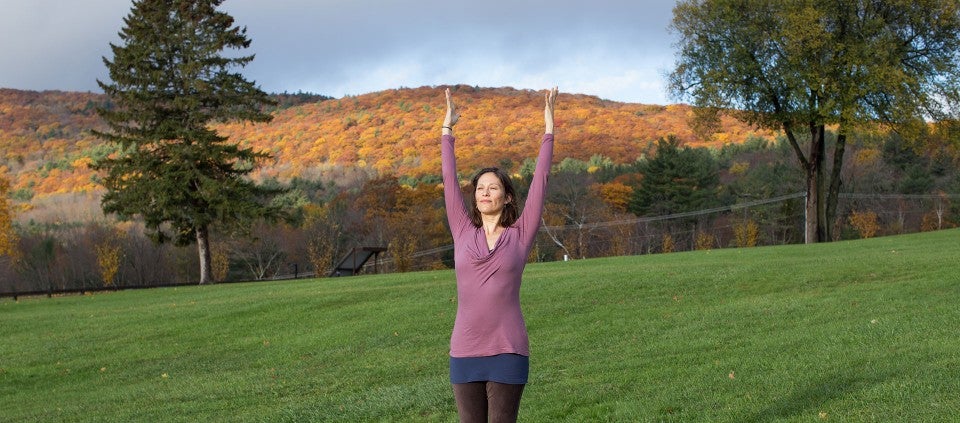Your Life Is Your Practice

“The world is our field of practice.”
—Rev. angel Kyodo williams
Across cultures and religions, traditions of ancient wisdom speak to the life of being a pilgrim and “walking a path.” They each, in their unique ways, encourage the cultivation of spiritual practices to support us on that journey—yoga, meditation, breathwork, study of scripture, prayer, chanting, writing poetry, painting, tea ceremonies.
What does it really mean to have a spiritual practice? What is a practice? Even more important, what are you practicing?
I invite you to take a moment to pause and ask yourself, What am I practicing in this moment? What am I practicing on a daily basis? What do I want to be practicing? What matters to me most right now?
The answers to these self-reflective questions are vital.
The answers are a gateway to everything that is happening in and around you. What we practice and repeat, we become. What we feed grows. What we water blossoms and eventually ripples out beyond ourselves. Mahatma Gandhi said, “Your beliefs become your thoughts, your thoughts become your words, your words become your actions, your actions become your habits, your habits become your values, your values become your destiny.”
These words bring up more questions: What are my thoughts, words, actions, habits, etc.? And are they in alignment with my vision, hopes, dreams, values, integrity, and dignity as a human being?
Our culture is designed to function from the mind.
We have become conditioned to living from the neck up, focusing on what we can control and possess. The symptoms arising from this include separation, isolation, anxiety, overwhelm, and depression. More and more people report feeling disconnected from one another and cut off from their sense of self. This is the source of the mindfulness trend that continues to sweep magazine headlines and research journals. Mindfulness has become a buzzword, a prescription for everything. But are we viewing mindfulness practices as just another thing to check off our to-do list—one more task to accomplish?
What is at the heart of mindfulness? When we begin to decode this concept, we find its roots 2,500 years ago, in the historical teachings of the Buddha. The first foundation of Buddhist meditation practice, recorded in the ancient text known as the Satipatthana Sutta (Discourse on the Establishing of Mindfulness) is “mindfulness of the body.” When you are aware of the body, you are in the here and now. Naropa University faculty member Lee Worley calls this “bodyfulness.” Through the body, we discover a new level of connection, presence, and intimacy with the nakedness of the moment, our experience, one another, and this life.
At the core of a practice is an embodied connection to the present moment.
Over time and through continued practice, we gain the courage to be in relationship with reality. From this embodied place, we have access to our full humanity and to what Tara Brach calls “radical compassion in action … An active caring that is all inclusive … and embraces all parts of our being [and] the humanity of all beings.”
Living your life as a practice means seeing the world, situations, relationships, and the other people we confront as our teachers. Rev. angel Kyodo williams says, “Our teachers are really the situations we confront moment to moment, day to day, month to month, year to year, that incite a sense of discomfort, dis-ease, and awkwardness within us. Our deepest learning and our deepest capacity for growth is not walling ourselves off, but rather, what do I have to learn from this teacher or this situation to evolve into a greater sense of what it means to be fully human—radically, completely in the truth of the human experience in all of its complexities and suffering.”
Daily practice supports us to see it all, hold it all, and be in relationship to it all from an embodied, whole, and accepting place. It begins with presence.
Here are five ways to bring more interconnectedness into everyday life.
- Take moments throughout your day to breathe and simply be.
- Smile at a stranger. Express care and connection.
- Be kind. Send a “thinking of you” note to a friend. Generosity is good medicine.
- Listen more.
- Pause, and relish the preciousness of being alive.
Jess Frey (she/her), E-RYT 1000, is a Kripalu Yoga educator, life coach, and artist known for her authenticity, motivation, and depth.
Full Bio and Programs